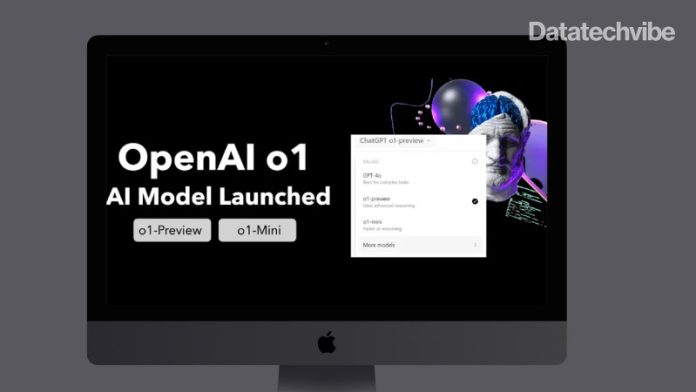OpenAI has announced the release of a new series of artificial intelligence (AI) models designed to excel in complex tasks by spending more time reasoning through problems before responding.
These new models, OpenAI o1, represent a significant step forward in AI’s ability to solve complex problems in science, mathematics, and coding.
The first of these models, o1-preview, has been made available for early access through ChatGPT and OpenAI’s API, offering users a glimpse of its capabilities. While this is a preview release, OpenAI has confirmed that frequent updates and improvements will follow as the models evolve.
Alongside this launch, the company is also previewing evaluations for the next update, which is currently in development.
A New Approach to AI Thinking
The o1 series has been trained to “think” more deeply, similar to how humans approach complex tasks. By spending additional time considering different strategies, these models can refine their reasoning process, allowing them to solve more complicated problems.
For example, the following model update demonstrated performance comparable to PhD students in physics, chemistry, and biology in recent tests. In the International Mathematics Olympiad (IMO) qualifying exam, the reasoning model scored an impressive 83%, compared to just 13% for the older GPT-4o model.
These models have also excelled in coding. During Codeforces programming competitions, the o1-preview model reached the 89th percentile, showcasing its ability to effectively generate and debug complex code.
Addressing Safety in AI
OpenAI has also introduced a new safety approach for these models, leveraging their reasoning abilities to enhance their adherence to safety guidelines. This includes improvements in how the models handle safety rules in context and their resistance to being manipulated by users attempting to bypass security measures, known as “jailbreaking.”
In one of OpenAI’s toughest jailbreaking tests, the o1-preview model scored 84 out of 100, a significant improvement over GPT-4o’s score of 22.
To support these advances, OpenAI has strengthened its internal safety measures, working closely with federal governments and AI Safety Institutes in the US and UK. Through these partnerships, the institutes have been given early access to the research version of the model for evaluation, marking a significant step towards ensuring responsible AI development.
Who Will Benefit
The OpenAI o1 models are designed for users tackling complex problems in healthcare, science, coding, and mathematics. For example, healthcare researchers can use the model to annotate intricate cell sequencing data, while physicists can generate complex mathematical formulas for advanced studies like quantum optics. Developers in all fields will benefit from its ability to handle multi-step workflows and intricate coding tasks.
OpenAI has also introduced a smaller, more cost-effective version called o1-mini, which focuses on coding. Priced at 80% less than the o1-preview model, the o1-mini provides developers with a powerful, budget-friendly option for coding tasks that require advanced reasoning but not extensive world knowledge.
How to Access the New Models
ChatGPT Plus and Team users can access the o1-preview and o1-mini models within ChatGPT by manually selecting them from the model selector. At launch, the weekly rate limits for o1-preview and o1-mini will be 30 messages and 50 messages, with plans to increase these limits.
ChatGPT Enterprise and Education users will gain access to both models next week, while developers with API tier 5 access can begin prototyping with these models immediately. However, some features, such as function calling and streaming, are unavailable in the API version.
OpenAI also plans to make o1-mini accessible to all ChatGPT Free users shortly.
What’s Next
This release marks the beginning of OpenAI’s new reasoning model series. While it lacks features like web browsing and file uploads, these capabilities are expected to be added in future updates. The company will continue to develop and release models in both the GPT and o1 series, aiming to expand the horizons of what AI can achieve.
The OpenAI o1 series offers a new frontier in artificial intelligence for users and developers looking for enhanced problem-solving tools. It promises continued advancements in AI-driven reasoning and safety.









